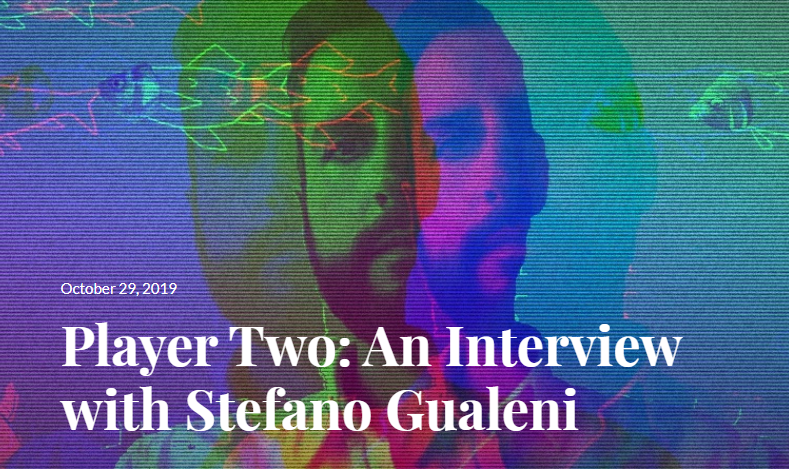
Player Two - Prof. Stefano Gualeni Interviewed by Miguel Penabella: An Exploration of Two Decades of Game Design and the Potential of Philosophy and Games


An in-depth Interview with Prof. Stefano Gualeni with Miguel Penabella editor and columnist for Haywire Magazine with writing featured in Kill Screen, Waypoint, and Unwinnable. The full interview is available on his blog Invalid Memory. Having released his first game at sixteen year of age, the interview covers over two decades of Prof. Gualeni's work with questions highlighting his experience in the videogame industry all the way to unpacking more philosophical questions relating to videogames. The full interview is a recommended read if you're interested in games and philosophy and can be found here.
Game Studies and Philosophy
In summary of the extensive interview, Miguel engages in a deep conversation with Stefano, drawing out his thoughts on his first professional credit dating back from 1996 in Mikro Mortal Tennis and tracking the journey from Tony Tough's Night of the Roasted Moths and it's sequel A Rakes Progress. Exploring Stefano's roots in architecture and philosophy in his early works of The Horrendous Parade based on David Hume's philosophical writing to his more recent research and experiment in philosophy through videogames focused on the philosophy of language Something Something Soup Something and "HERE".
Game Studies Books
Prof. Gualeni has a number of books under his belt such as Virtual Worlds as Philosophical Tools, and also recently made a significant contribution to the recently published Architectronics of Game Spaces. Miguel questions Stefano in relation to his thoughts on Virtual Worlds as Philosophical Tools which was an re-digestion and an expansion on his PhD dissertation, resulting in aninteresting discussion on the limitations and downsides of language as primary tool for philosophy and how games can contribute here.
Video Game Research Studies
The Institute of Digital Games has one of the best post-grad degrees in Game Design, approaching it both from a humanities perspective involving game studies, literary theory and a technology perspective including artificial intelligence, machine learning, and procedural content generation. Research is at the core of the Institute's work as can be evidenced by their collaboration with industry giants Ubisoft, their publications in prestigious journals like Techne' or Transactions in Evolutionary Computing, as well as the funding available for their PhD students and post-doctoral researchers.
Prof. Stefano Gualeni discusses his explorations in game research in depth in the interview with Miguel Penabella. If you would like to learn more about the institute's research, events, and publications sign up to our Newsletter below!

